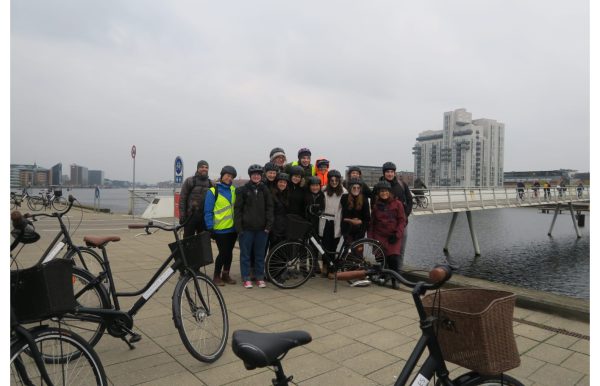
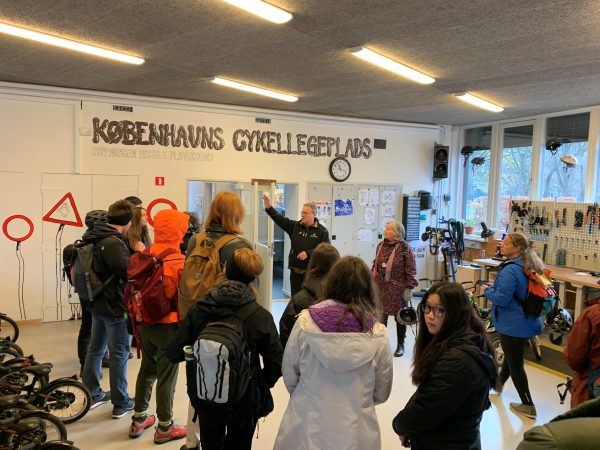

Cycling is more than recreation and enjoyable exercise when it’s viewed through the lenses of social and environmental justice in a new first-year seminar course at Kalamazoo College.
Offered for the first time in fall through Professor of English Amelia Katanski, the class Wheels of Change worked closely with community partners, including the City of Kalamazoo, the Open Roads Bike Program and K’s own Outdoor Programs, to explore how communities can build cycling infrastructure to better support residents.
In the classroom, students examined how bicycles empowered women and people of color during the late 19th century’s so-called cycling craze. It also looked at how bicycles today are sustainable tools in limiting climate change and supporting environmental health in ways that are capable of redressing racism, and gender- and ability-based discrimination. Katanski has taught community-based first-year seminar classes for more than 15 years. But the course in fall 2020 about food and farming justice in the time of COVID was unrepeatable with the pandemic winding down. She began to brainstorm ideas for new classes.
“Cycling has always been a passion of mine, and I came across a book called Revolutions: How Women Changed the World on Wheels,” Katanski said. “I started reading it and thinking about the origins of cycling and how it was this space for women and people of color to experience freedom, mobility, independence and physicality that wasn’t easily available to them. It began to sound like this great idea for a first-year seminar.”
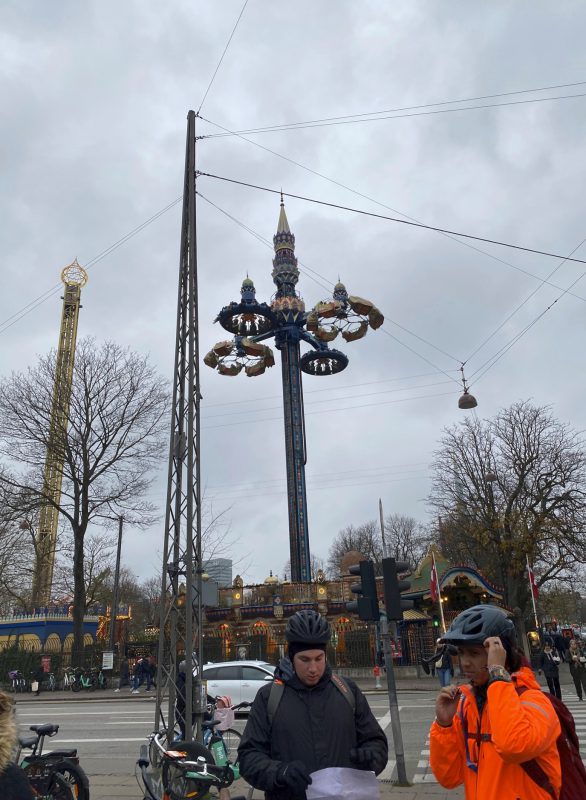
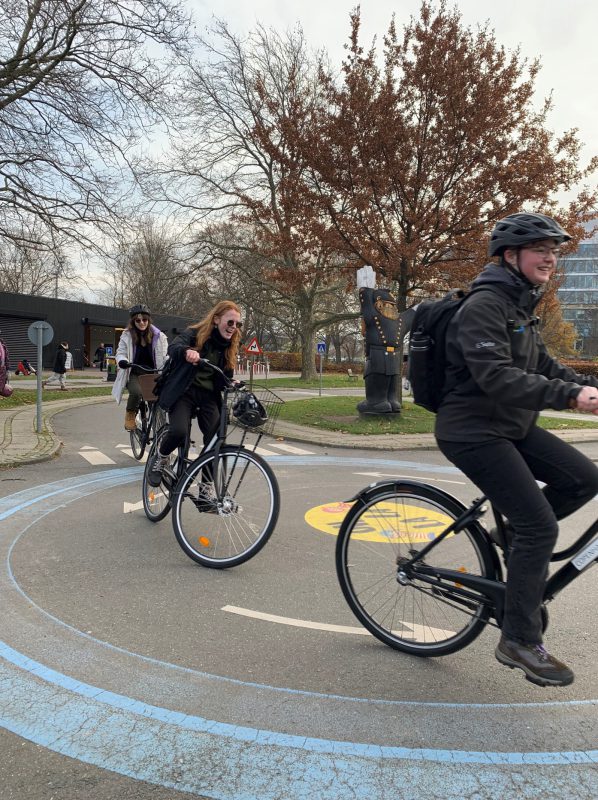
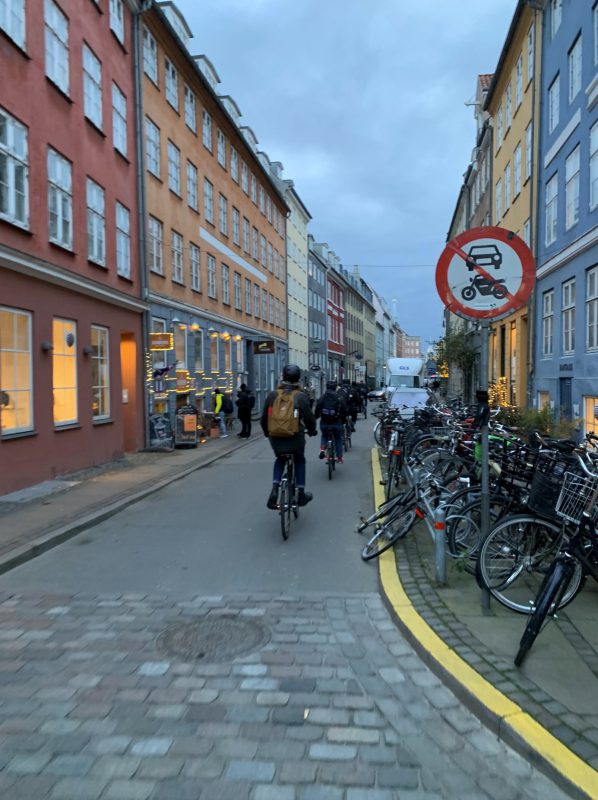
Outside the classroom, students met every Friday to participate in guided bike rides that gave them a feel for Kalamazoo’s current cycling infrastructure and how they might help or hinder the cycling community. They also split into groups to work on projects on and off campus. Students worked alongside City Planner and K alumna Christina Anderson ’98 on a project examining the city’s infrastructure, as well as with Open Roads Executive Director Isaac Green on a project developing and implementing safe-cycling routes for Kalamazoo-area children. On campus, they joined forces with K Outdoor Programs Director Jory Horner and Assistant Director Jess Port, investigating ways to make college-owned bikes more accessible to students, while promoting and supporting cycling among students and developing a cycling culture on campus. To top off the class, Katanski and her students traveled for a week to Copenhagen, Denmark, to see how the city, one of the world’s best for cycling infrastructure, can provide examples from which Kalamazoo can learn.
Signing up for the class was a no-brainer for Elliot Russell, a Kalamazoo native, and Lillian Deer, a student from Washington state. Russell, for example, visited Amsterdam last spring, a city he considers to be a cycling capital.
“That trip was eye opening to me, to see there are other possibilities of what urban space can look like other than what our interface looks like in America,” he said. “Since that trip, I’ve vowed, even though I have a car and a driver’s license, that I’m going to start biking for transport because I enjoy it. It’s also more ethically sound than using a car.”
Deer said she was already interested in environmental sustainability and social justice before the class began, but didn’t know that bicycling could combine those themes. She wasn’t an active cyclist at the time, although group rides through the class made her feel more confident, provoking her excitement to work in the group that assisted K Outdoor Programs in figuring out what the College could do to be more bike friendly.
“We researched several schools and we realized we need to have some sort of bike share program,” Deer said. “And to do that, we need a place to put bikes because the lack of one is preventing people from bringing their bikes to campus, according to the student survey we did,” Deer said. “We would like to continue those group rides, too, perhaps with a bike club, and match that with the new infrastructure.”
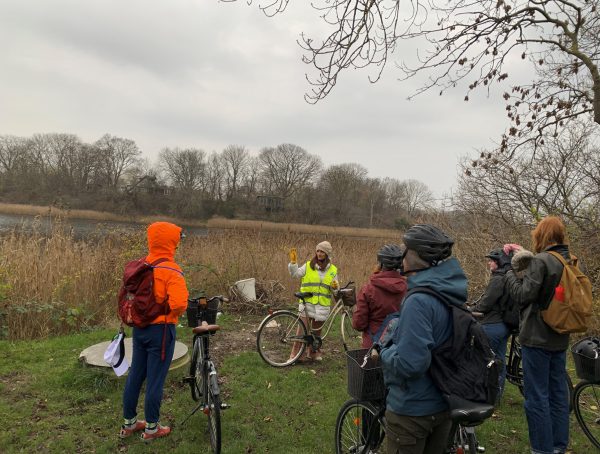
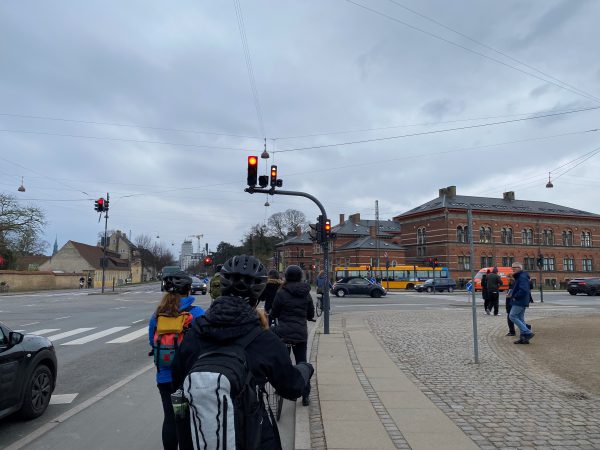
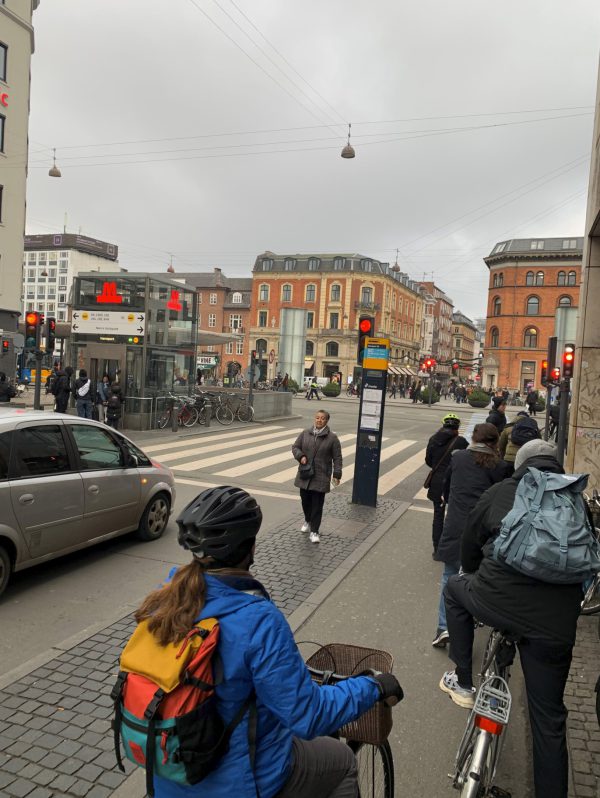
Russell worked with the Open Roads group, examining biking infrastructure at Kalamazoo Public Schools. Open Roads traditionally works with youths to put bikes in their hands through bike workshops, making the organization a good partner in creating a comprehensive guide to helping the schools be more bike friendly.
“We went to Maple Street Middle School and Linden Grove Middle School to count how many bikes are on campus,” he said. “We counted the bike racks, surveyed the neighborhood in the constituent districts to also see what the infrastructure was like there. It all gave us a better idea of what the problems are and what the solutions could be. We wanted to advocate for students to have safer routes to school.”
Russell said the trip to Copenhagen with his classmates was eye opening for the contrast it provided between the bike infrastructure there versus in Kalamazoo. Copenhagen has a much stronger ingrained cycling culture despite its cold winters. The city, for example, plows its bike lanes at the same time or earlier than its roads.
While the seminar wrapped up at the end of fall term, some of the students from Wheels of Change are keeping their projects in motion this winter, putting their heads together with their community partners to see whether the City of Kalamazoo, Open Roads and Kalamazoo College can work independently or in cooperation to build better bike infrastructure.
“We’ve all realized we could be riding more and driving less, and I hope our students think about what it means for how we continue to live in this community,” Katanski said. “This term we drew on our experiences in Copenhagen to continue to develop relationships with our community partners, support bike culture on campus, and plan for future work. We’ve met on Zoom with an alum, Dan Goodman, who is the Mid-Atlantic Planning Director for Toole Design about his career path working on bike and pedestrian transportation; and spoke with community partner and co-op consultant Chris Dilley about cooperative organizational structures. Students also presented their projects at the Midwest Outdoor Leadership Conference. We’re all looking forward to more riding and support of city bike infrastructure—and the launch of a K bike co-op—in the spring.”
